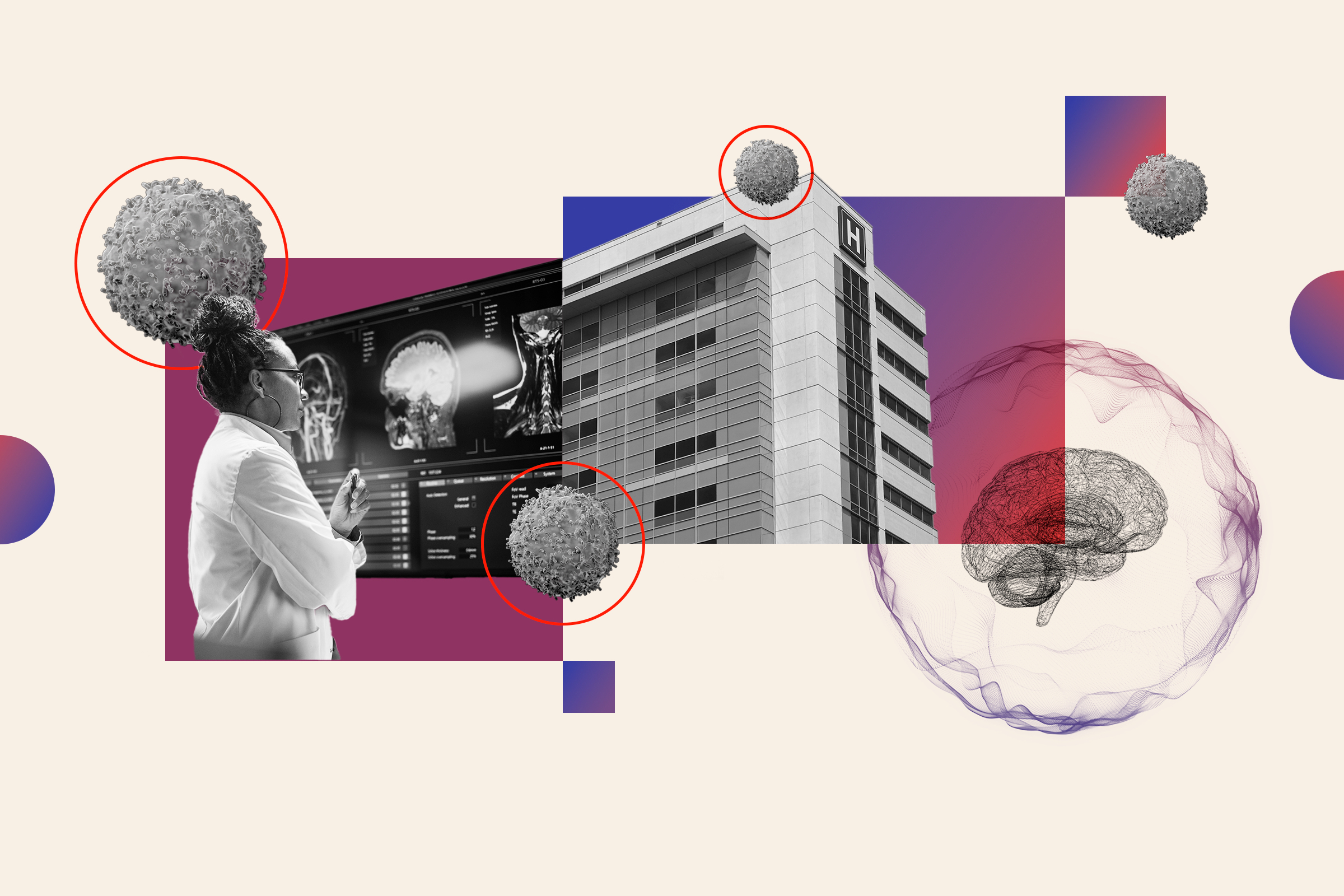
For all the hype around artificial intelligence (AI) in health care, the biggest obstacles have often been bureaucratic, not just technical. Patient privacy laws, incompatible data systems and the institutional instinct to protect proprietary datasets have all slowed the pace of applying AI to medicine.
This week, a coalition of the nation’s top cancer centers unveiled what may be the first real workaround. The Cancer AI Alliance, or CAIA, announced the launch of a collaborative platform that lets institutions train AI models on millions of patient records—without ever exchanging raw data.
The key is federated learning, a method that allows models to travel to data rather than the other way around. Each cancer center keeps its patient data inside its firewall, where the model learns locally and returns only the insights. Those insights are then aggregated into a stronger shared model, avoiding the regulatory and privacy minefield of pooling sensitive records in a single database.
“We are at an urgent inflection point in both cancer research and AI, and this platform enables us to rise to this moment by rapidly advancing cancer research, treatments and care,” Jeff Leek, Ph.D., vice president and chief data officer at Fred Hutchinson Cancer Center and scientific director of CAIA, said in a statement.
“Currently, it takes years to uncover new insights that can be translated into better treatments and care, but this platform will accelerate the pace of breakthrough discoveries by up to tenfold, reducing that time from years to months,” he added.
The alliance, founded just last year, pulled off what many had considered extremely challenging: creating a unified technical, legal and governance structure across institutions that are normally slow to share. Members include Dana-Farber Cancer Institute, Fred Hutch, Memorial Sloan Kettering Cancer Center and Johns Hopkins, with tech support from Amazon Web Services, Deloitte, Google, Microsoft, NVIDIA, Ai2 and Slalom.
Industry partners hailed the initiative as a landmark in cross-sector collaboration. “Collaboration often leads to discovery,” said Jason Girzadas, CEO of Deloitte U.S. “CAIA brings together leaders across industries to address one of the world’s most critical health challenges. The unprecedented speed of developing and delivering CAIA’s platform is made possible through each group driving toward this common goal.”
Leaders from Amazon AWS, Google and Microsoft highlighted the platform’s secure, scalable design and its potential to accelerate breakthroughs, while leaders from Ai2 and Slalom emphasized how the collaboration could unlock new insights and reshape the use of AI in cancer care.
“It cannot be overstated how momentous it is that we came together to launch this platform in just one year, and we did it as a unified alliance with a shared mission to eradicate cancer,” said Brian M. Bot, director of the strategic coordinating center for CAIA.
Other tech partners echoed that sentiment. Ali Farhadi, CEO of Ai2, called it “a powerful combination that will accelerate scientific progress and save lives,” while Brenda Young, managing director at Slalom, noted that “collaboration between leading cancer centers and technology partners can unlock new insights and reshape the use of data and AI to diagnose, treat and prevent cancer. We look forward to our continued partnership as we pave the way for transformative breakthroughs in health.”
Eight research projects are already underway, including efforts to predict treatment response, identify novel biomarkers and analyze rare cancer trends. Collectively, the participating centers bring more than a million patients’ worth of de-identified data to the table, providing the scale needed to build reliable models.
Alexis Battle, Ph.D., professor at Johns Hopkins, said, “CAIA will enable unprecedented exploration of AI models for cancer patient data through a privacy-aware framework and a collaborative research alliance.” Anaeze Offodile, M.D., M.P.H., of Memorial Sloan Kettering, added that the initiative represents “a strategic shift leveraging collective strength rather than isolation,” combining clinical expertise with technology and data to accelerate advances while upholding high standards of security and integrity.
For business leaders watching AI’s spread across industries, CAIA’s launch is less about oncology than it is about precedent. The initiative demonstrates that federated approaches—long discussed but rarely implemented at scale—can move from theory to practice when institutions align incentives. It also highlights how governance frameworks can be as innovative as the algorithms themselves.
If the model proves effective, it could have far-reaching applications beyond cancer. Any field that struggles with data silos (finance, logistics, government services) could benefit from federated structures that enable learning without loss of control.
Eliezer Van Allen, M.D., the Chandra Nohria Family Chair for AI in Cancer Research at Dana-Farber Cancer Institute, looked to the future: “With the launch of CAIA we have laid a critical foundation in the effort to accelerate new discoveries, and the combined data from our cancer centers can now power these innovative AI models. We are excited to share these models with research centers across the nation and exponentially expand access to the data that will drive progress toward better diagnosis, treatment and outcomes for cancer patients everywhere.”
For now, CAIA is an experiment in collective action—an alliance that found a way to let algorithms scale where human bureaucracy often stalls. If it succeeds, the real innovation may not be in the code, but in the cooperation.
As Brenda Young put it: “When institutions and technology partners move together, breakthroughs stop being the exception—they become the rule.”



